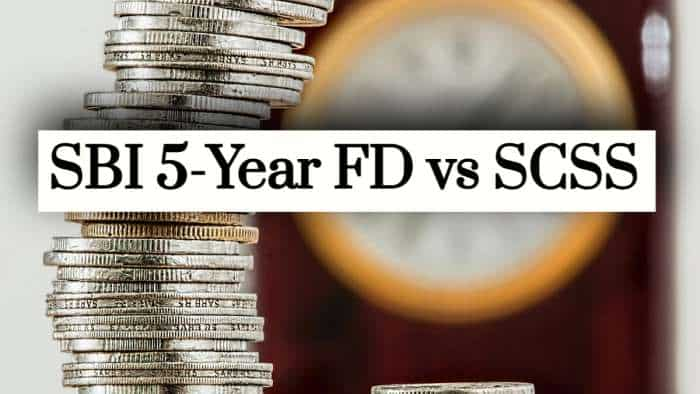Government constitutes 3-member advisory board of sitting HC judges to review NSA cases
The Ministry of Home Affairs (MHA) has constituted an advisory board comprising three judges of the Delhi High Court to review the cases registered under the stringent National Security Act (NSA) which allows the detention of a person up to a year without any charge.

The Ministry of Home Affairs (MHA) has constituted an advisory board comprising three judges of the Delhi High Court to review the cases registered under the stringent National Security Act (NSA) which allows the detention of a person up to a year without any charge.
Such an advisory board is constituted under Section 9 of the 1980 Act.
See Zee Business Live TV Streaming Below:
According to an official notification, Justice Yogesh Khanna will be the chairman of the advisory board while justices Chandra Dhari Singh and Rajnish Bhatnagar will be members of the high-powered body.
The NSA empowers the government to detain a person if it considers the individual a threat to national security or to prevent him or her from disrupting public order.
Under the NSA, a person can be detained for up to 12 months without a charge. The detained person can be held for 10 days without being told the charges against him or her.
The detainee can appeal only before the advisory board for relief but will not be allowed a lawyer during the trial.
In the case of every NSA detainee, the government concerned shall, within three weeks from the date of detention, place before the advisory board the grounds on which the order has been made and the representation, if any, made by the detainee.
The advisory board shall, after considering the materials placed before it and after hearing the detainee, submit its report to the government within seven weeks from the date of detention of the person concerned.
The report of the board shall specify as to whether or not there is sufficient cause for the detention. In cases where the advisory board has reported that there is, in its opinion, sufficient cause for the detention of the person concerned, the government may confirm the detention order and continue the detention for such period as it thinks fit.
In cases where the board has reported that there is no sufficient cause for the detention, the government shall revoke the detention order and the detainee to be released forthwith.
A detained person can continue to be in jail without obtaining the opinion of the advisory board for a period longer than three months, but not exceeding six months where such person had been detained with a view to preventing him from acting in any manner prejudicial to the defence of India.
This also applies if the person is detained to prevent from interfering with the government's efforts in coping with the terrorist, the security of India or the maintenance of public order or the maintenance of supplies.
The NSA was enacted in 1980 when the Indira Gandhi government was in power.
According to the data provided by the government in Parliament in 2020, nearly 1,200 people across the country were detained under the NSA in 2017 and 2018.
Madhya Pradesh detained the highest number of people under the NSA among all the states followed by Uttar Pradesh.
In Madhya Pradesh, 795 people were detained under the NSA in 2017 and 2018 while 466 were released by review boards and 329 were under custody.
In Uttar Pradesh, of the 338 people detained under the NSA in 2017 and 2018, 150 were released by review boards and 188 were under detention.
No official data is available about NSA detainees since 2019.
Get Latest Business News, Stock Market Updates and Videos; Check your tax outgo through Income Tax Calculator and save money through our Personal Finance coverage. Check Business Breaking News Live on Zee Business Twitter and Facebook. Subscribe on YouTube.
05:36 PM IST














 Delhi CS Naresh Kumar gets additional charge of NDMC chairperson
Delhi CS Naresh Kumar gets additional charge of NDMC chairperson MHA letter to SEC to know reason for additional 485 companies of central forces
MHA letter to SEC to know reason for additional 485 companies of central forces Delhi budget 2023: Kejriwal asks Centre to end tussle, cooperate with Delhi government
Delhi budget 2023: Kejriwal asks Centre to end tussle, cooperate with Delhi government Arvind Kejriwal alleges central government has put Delhi budget on hold
Arvind Kejriwal alleges central government has put Delhi budget on hold National Population Register: NPR needs to be updated again, says Home Ministry report
National Population Register: NPR needs to be updated again, says Home Ministry report